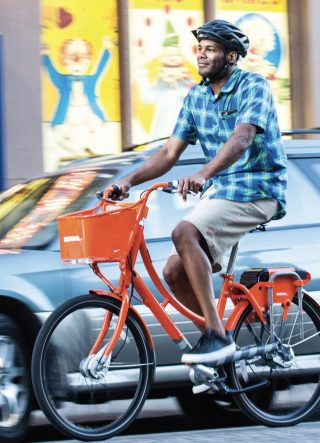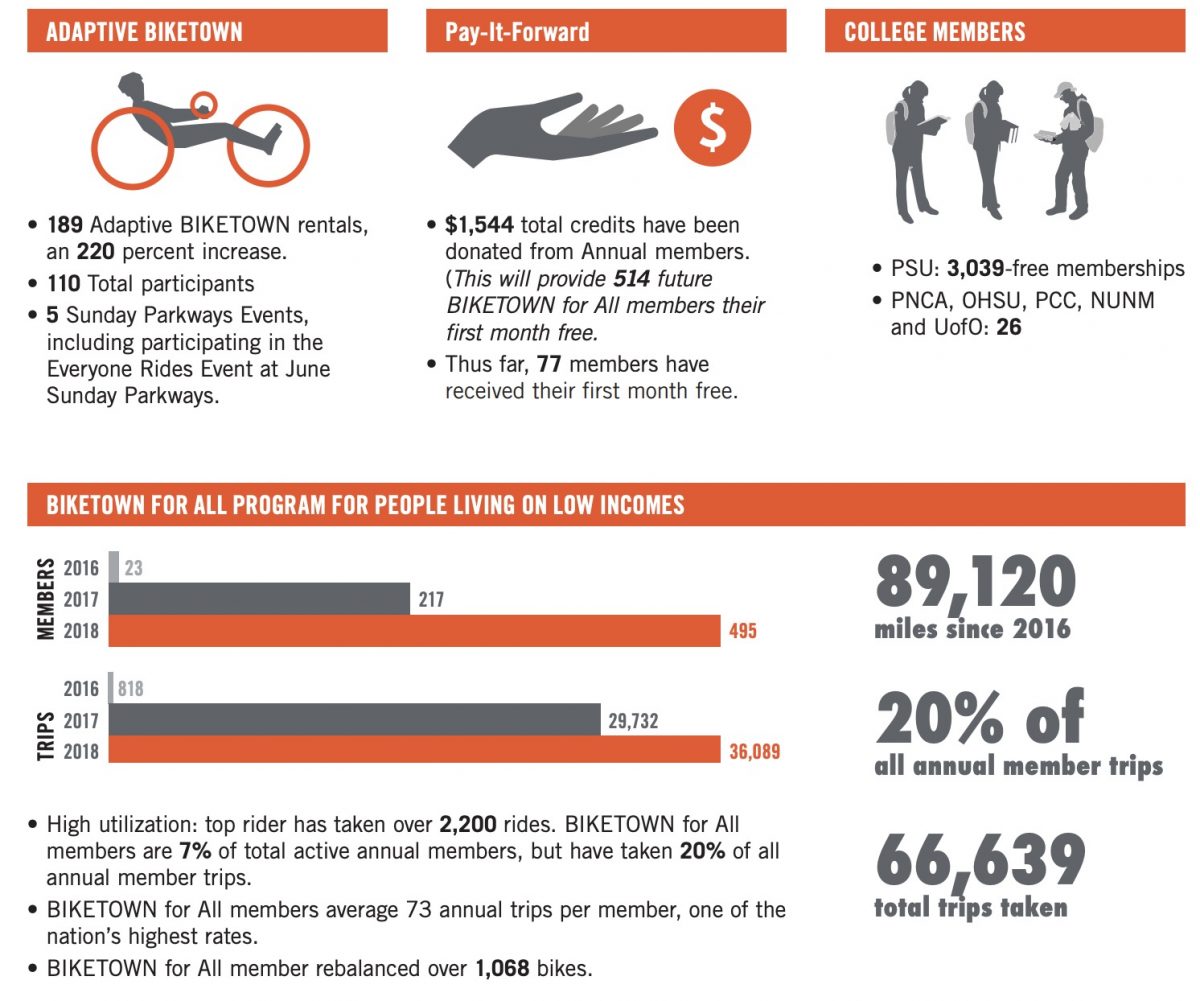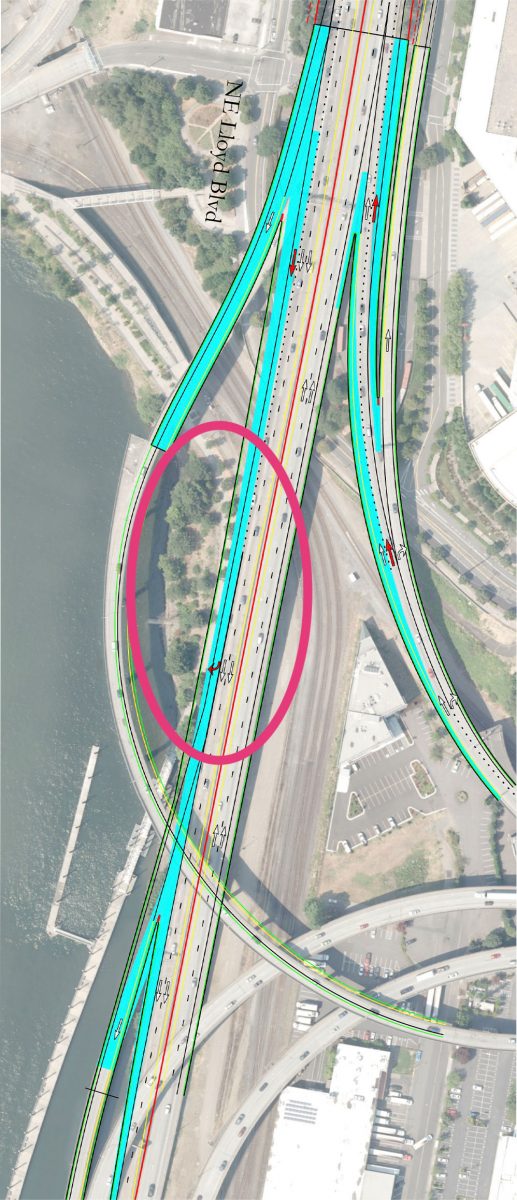
So far, Biketown hasn’t turned out to be the ubiquitous presence or dominant travel mode I hoped it would be. Instead it’s a (mostly) reliable, well-run, affordable and accessible transportation option for people who need it most.
That’s what I came away thinking after I read the 2018 Biketown Annual Report (PDF) recently adopted by Portland City Council.
When Biketown launched in July 2016, I was eager to finally have a bike share system. Even though Portland was late to the party, I assumed the orange bikes would a vast impact on how we get around. Inspired by the systems I’d used and seen flourish in Washington D.C. and New York City, I envisioned orange bikes everywhere. And with bikes everywhere we’d have bike riders everywhere and we’d have bike infrastructure everywhere and my dreams of a cycling city would finally be realized.
But that’s not how things have gone.
Almost three years in, and I find myself not even thinking about Biketown much. Instead of thousands of bikes blanketing neighborhoods throughout the city, the fleet size hasn’t budged since it launched. Biketown hasn’t led to a vast increase in cycling mode share. I’ve let my own membership lapse.
Biketown hasn’t turned out as I expected. And that’s OK.
Now that the novelty of having the system up-and-running has worn off, and given its limited service area, budget, and fleet size, I’ve come to accept the fact that Biketown’s impact will be limited. What I didn’t realize is that there are many other positive ways a bike share system can impact a city. It’s not just about mode share and the number of bikes on the street.
Biketown adds value to our city by servicing small (yet important) niches of unmet mobility needs, and providing bicycle transportation to people who otherwise wouldn’t or couldn’t access it.
Advertisement

In their annual report under the heading of “What’s next?” PBOT writes that the system is, “… finding new ways to fill in gaps in the transportation needs of Portlanders,” and that bike share, “provides flexibility for day-to-day activities.” That hardly sounds like a program bent on citywide domination.
What if Biketown is Portland’s secret weapon in doing what PBOT and advocates have been trying (unsuccessfully) to do for years? That is, to diversify the current demographic of Portland bicycle riders?
What if Biketown is Portland’s secret weapon in doing what PBOT and advocates have been trying (unsuccessfully) to do for years? That is, to diversify the current demographic of Portland bicycle riders? PBOT doesn’t shy away from this. In the title to the executive summary of their annual report, PBOT wrote Biketown is, “Broadening and diversifying the city’s bicycle culture.” They’ve done this by revamping their fare structure, keeping the brand fresh and interesting through special edition bike “wraps”, and making bikes available to communities with constrained budgets and options.
The Portland Bureau of Transportation and their operator Motivate have continued to refine programs like Biketown for All and Adaptive Biketown — both of which fill important cycling niches in our city.
According to the annual report, Biketown for All members (whose low-income qualifies them for discounted memberships) are 7 percent of all active annual members but take 20 percent of all member trips. The Adaptive Biketown program seems to have found its stride with 189 rentals for 110 people last year — that’s a 220 percent increase from the first pilot period.
This isn’t to say Biketown is falling behind on other key metrics. Beyond the niches, the numbers are still positive: annual memberships in 2018 were up 87 percent over 2017 and ridership grew 28 percent year-over-year. And we can expect expansions in the coming year. Speaking of which, electric-assist Biketown bikes will be game-changers and they’ll hit the streets soon (a survey showed more than one-third of members would use Biketown more if the bikes had e-assist).
Biketown has proven to be effective at making bicycles more accessible to more people and squeezing maximum transportation value out of a limited budget. That bodes well for its future; a future I still hope includes citywide domination.
— Jonathan Maus: (503) 706-8804, @jonathan_maus on Twitter and jonathan@bikeportland.org
Never miss a story. Sign-up for the daily BP Headlines email.
BikePortland needs your support.


